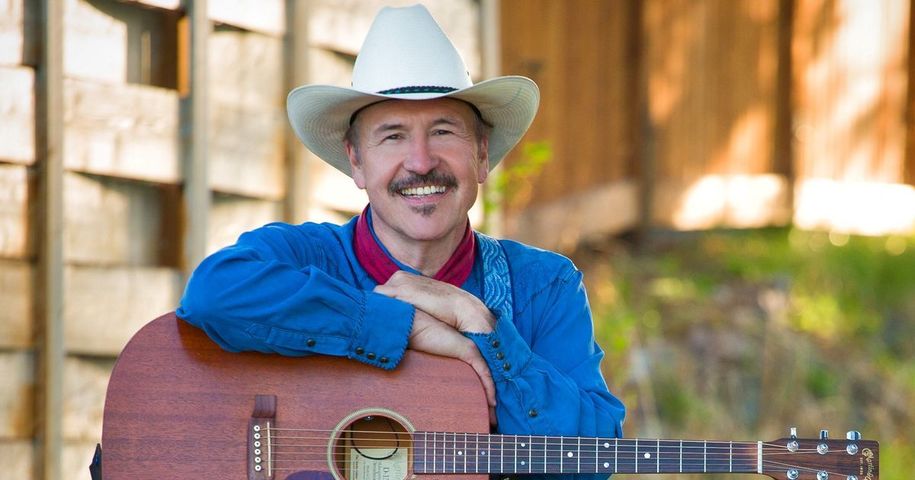There’s this stereotype that a law degree is a bit of a pre-requisite for serving in public office. But that certainly isn’t a requirement. Rand Paul was an optometrist before running for office. Rush Holt Jr. was a rocket scientist. Our current president even was a reality TV personality before his decision to serve the nation. And this week singer-songwriter Rob Quist is trying to make the jump from musician to member of Congress in the Montana special election .
Mr. Quist isn’t the first person to start his political career as a musician.
Of course there's Sonny Bono. Whether he was riding Cher’s coattails to success as a pop star or Newt Gingrich’s to a house seat in the Republican takeover of 1994, he made a career out of it. In all fairness to Sonny though, the man was ambitious, I mean even that mustache took some serious dedication. His political career started modestly enough, he ran for mayor of Palm Springs after a disagreement with the city over his inability to obtain a restaurant permit. Surprising everyone, including himself, Sonny won in 1988. The fact that he ended up a congressman after leaving Palm Springs makes it safe to say that quitting his time as mayor was the second smartest breakup of his life.
Sonny is one of many musicians to try their hand at politics.
Jello Biafra of the Dead Kennedys ran for mayor of San Francisco in ’79 with a platform of making all businessmen in the city wear clown suits (maybe I should listen to more Dead Kennedys).
Wyclef Jean tried to run for president of Haiti in 2010 but was disqualified by the election commission for not meeting the residential requirements laid out by the Haitian Constitution (he also did not speak French). Kris Novoselic, Nirvana’s bassist, had to back out of the 2004 race for Lieutenant Governor of Washington. He continued his political career in 2009 however, by running a protest campaign against Washington’s election laws as the sole member of the Grange Party. Luther “Luke” Campbell of 2 Live Crew ran for mayor of Miami-Dade County in 2011 and actually carried 11% of the vote, beating out 7 other candidates. How does that .4% percent taste now Farid Khavari? I’m honestly a little shocked Campbell didn’t win, considering his biggest campaign rally was reportedly a 4,000-person toga party with a stand giving out free Four-Loko. The guy clearly knew his constituents. I guess his loss makes a little more sense when you consider the fact that the focus of his campaign platform was taxing strippers’ incomes. Taxing tips is a slippery slope after all.
And then there's John Hall of the 70's band Orleans, who served in Congress from 2007 to 2011. By the time he got to DC he looked like your bald uncle, but back in the day he was belting out top-5 hits "Dance with Me" and "Still the One."
Of course the big race this year that everyone around America is talking about is the Board of Selectman election in Lincolnville, Maine. Well, not everyone, but Phish fans are certainly aware that the band's drummer Jon Fishman has entered the race. He cites Bernie Sanders’ call to run for local office as his main reason to gun for a position in Lincolnville.
Acting locally is often a safer bet for non-traditional candidates but, given the proper circumstances, musicians can have the name-recognition to contend in higher profile competitions.
One of the more interesting candidates to emerge in the current round of special elections comes from the race for Montana’s lone seat in the House of Representatives. The aforementioned Rob Quist, a “cowboy poet,” is a native Montanan who frontmanned the bluegrass and country-rock group Mission Mountain Wood Band. He is facing off against Greg Gianforte, a millionaire businessman native to New Jersey. Quist has been emphasizing his connection with Montana and commitment to public lands while attacking his opponent for being representative of national interests. Rob Quist is running a powerful grassroots campaign and is raising money largely without the help of Democratic National Committe but is still a firm Democrat who hopes that his campaign can help the party reconnect with rural America.
He is however, proud of his maverick background and is glad that “We’ve been running our own thing here,” according to a May 16th Rolling Stone article. This outsider position should help Quist win the hearts of undecided Montana voters, who are fiercely independent-minded (Trump won the state in 2016 despite them electing a Democrat for governor). Although the sparsity of Montana’s population makes polling difficult, Rob Quist definitely seems to be the local favorite. He is even winning over the hearts of the disillusioned Blackfoot tribe. Alissa Snow, a representative of the tribe, was quoted by The Nation saying “With the Blackfoot, our issue is oil and gas exploration… A lot of people felt that Obama failed them on this. And Hillary’s lack of comment turned people away from the party in a big way.”
Win or lose, hopefully Rob Quist’s campaign will change the public’s opinion of artists running for office and possibly open the door for future candidates. Can I get a Yeezy 2020 anyone?
